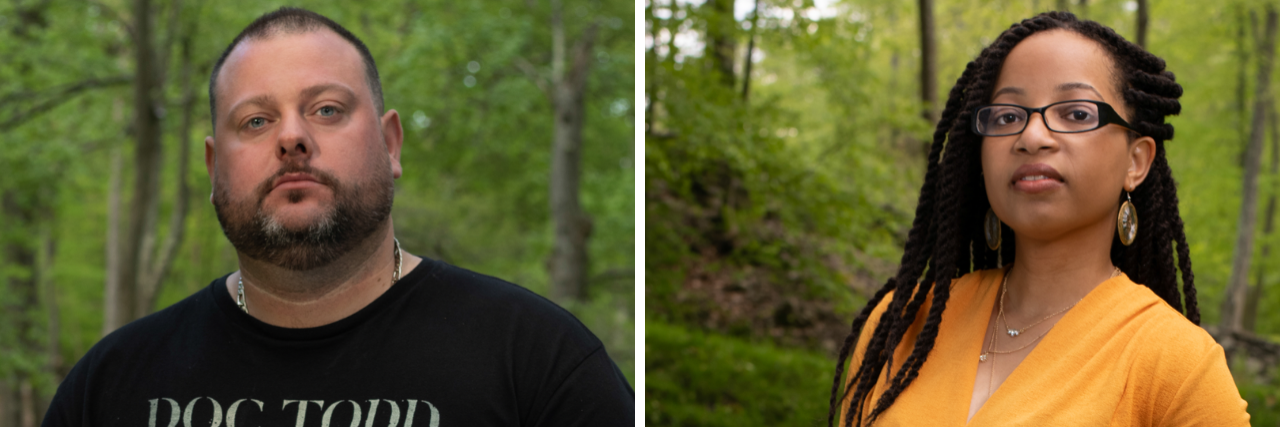Diet Coke's 'Unlabeled' Campaign Features People With Disabilities, Mental Illnesses and More
In a new, inclusive advertising campaign, Diet Coke is removing labels from some of its products “to start a conversation about labels.” The campaign features people living with disabilities and mental health conditions, and recognizes that representing diverse perspectives in advertising is good business.
Titled “Unlabeled,” Diet Coke’s multi-year campaign highlights stories from people of color, people outside the gender binary, LGBTQ folks, people of all ages, and people with disabilities and mental illnesses. The company partnered with nonprofit organizations such as the American Association of People with Disabilities in launching the campaign.
“There’s no one-size-fits-all perspective, but we believe that openly and honestly discussing labels — both positive and negative — can lead to a better understanding of others,” Kerri Kopp, group director for Diet Coke, said in a press release. “The [unlabeled] platform is meant to facilitate a conversation across a variety of groups and mediums to explore the complexities of labels. By unpacking various labels, we hope to champion acceptance and create more meaningful connections.”
On its website, Unlabeled presents individual stories from people who represent diverse identities — or labels — to drive home its point. One advocate who chose to include her story is Keri, who uses a prosthetic leg after surviving bone cancer as a child. She said she saw herself reflected in her community growing up as a young black woman, but images of disability were harder to find and she struggled to sort out what that meant for her identity.
“There wasn’t really anyone else like me, in my school or my communities to really have that conversation of what [disability] meant,” Keri told The Mighty, adding:
It is a common experience, and you don’t have to be ashamed of it. And for a long time I was. And I wanted to hide that part of myself to the best of my ability. But now when I wear my prosthetic, it just, it’s there and I don’t think it’s anything. I want to reach folks and be able to say, you know, if you have a disability, if you have any type of thing about you that is unique, own that. Be OK with it. Learn how to do it in a way that gives you confidence, that empowers you.
Doc Todd, a military combat veteran, also wanted to participate in the Unlabeled campaign to talk about mental health issues, especially as a veteran. Todd served in the Marines in Afghanistan and after the hard things he saw while deployed, when he came home, he struggled with post-traumatic stress disorder (PTSD), which affects approximately 11-20% of veterans.
Todd found having a mental health diagnosis led him to experience a lot of stigma, including barriers to finding employment. He now creates and produces hip-hop music with other veterans to combat mental health labels that contribute to stigma, including the original album “Combat Medicine.” By telling his story, he hopes to make a difference for others in the veteran and mental health communities.
“I feel called to share my story and hope it will help because I don’t have anything to be afraid of, or embarrassed about,” Todd told The Mighty. “It wasn’t until I took ownership of my story that I was able to heal and begin talking about this. … Take a look in the mirror and maybe think about some of the ways that you’re labeling other people.”
Advertising rarely represents people with disabilities (or other health conditions). It happens so infrequently, when brands do include models or actors with disabilities, it’s still newsworthy. A 2015 U.K.-based study found only 19% of people featured in ads came from a minority group, including race, sexual orientation or disability. Of that 19%, just 0.06% of people featured in ads have a disability. In comparison, in the U.K., about 20% of the population has a disability.
The same study found better representation can be good for business — 65% of survey participants looked more favorably on businesses that used diverse advertising. Similarly, companies in recent years such as Nike, Colgate and Budweiser found combining advertising with a social justice message profitable. Nike’s social justice ad campaign featuring football player Colin Kaepernick led to a 31% increase in sales following the ad.
Diet Coke’s Unlabeled also clearly has a social mission that encourages self-expression and a candid conversation about how the various labels we carry impact us. Todd said this is part of why he wanted to participate in the campaign. Keri, who mentors young disabled women, hopes taking a hard look at our labels ensures we’re creating a world that’s truly inclusive — one step that includes more diversity in advertising.
“There’s been so much research, and so much conversation about the value of diversity inclusion. But there’s still a lot of work to be done,” Keri said, adding:
The ultimate goal for me is to reach communities who have often been silent, and do not have space to share who they are, and how they see themselves. And I think that’s incredibly important to build on, just the strength of our identities, and our communities and our cultures, to be able to say, ‘I see you, and we need you.’
Article updated Aug. 15, 2019
Header image via Diet Coke

